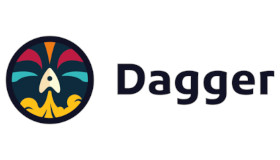Case study: Dagger & Docker
State of Open: The UK in 2023
Phase Two “Show us the Money”
Part 1: “The Economics of Open Source Software”


Solomon Hykes, Co-Founder
Solomon Hykes, co-founder of Docker, revolutionised the tech industry with an Open Source container platform. In the early days, Hykes faced fundraising challenges but found success through Y Combinator. Docker’s exponential growth led to a substantial $300 million investment, yet financial mismanagement nearly led to failure. Despite lessons learned, Docker thrived, and Hykes moved on to found Dagger in 2019, an Open Source CI/CD engine. Learning from past experiences, Dagger secured $7 million in a seed round and later a Series A round in 2022. Hykes emphasises financial discipline in scaling Open Source startups and notes the maturation of the European investment ecosystem. The journey reflects the complexities of growing successful Open Source businesses in an ever-evolving tech landscape.
Solomon is best known as the founder of the Open Source Container company, Docker. Solomon relocated from France to the Bay Area 12 years ago to grow his start-up – initially founded in France with a school friend – Docker, which was first called dotCloud. Docker is an Open Source platform that automates the deployment, scaling, and management of applications inside containers. It’s a revolutionary technology that makes it easier for developers to create, deploy, and run applications anywhere, on any device. He recently founded a further Open Source start-up, Dagger.
During the early years, Solomon and his friend were trying to fund their R&D work on the dot- Cloud product through consulting; however, this was time consuming and as his partner was not interested in pursuing the tech path, Solomon moved to the US with one of Docker’s previous employees who later became the company’s official co-founder and together they spent a few years iterating on this product. He left in 2018 to take a break.
Open Source start-up, Dagger was founded in 2019. Solomon’s experience working in different industries as a software engineer helped him learn a lot and to connect the dots across different silos in tech, and in turn to build a better understanding of Open Source Software and the software products needed in the ecosystem.
Finding Investors as a Beginner: Docker
Fundraising for a tech start-up can be a daunting task, especially for beginners in the industry. When starting Docker, Solomon and his co-founders were complete outsiders with no connections or prior experience. This made it incredibly difficult to raise funds as they were unfamiliar with the process and lacked the necessary network. Their initial experience with fundraising was through a traditional small business incubator in France.
Everything changed when they joined Y Combinator, a renowned start-up accelerator in the Bay Area. Y Combinator was interested in the team’s technical expertise and ability to adapt and iterate quickly and Solomon relocated to the US to follow this opportunity. They invested small amounts of money in the team’s potential, even though the founders did not have a well-formed business plan or a clear idea of what they wanted to build. Through Y Combinator, the founders gained valuable insights and learned the importance of focusing on solving a specific problem for users. This led to the development of their fundamental ground-breaking technology, “Containers”.
Containers are isolated units of software that can run on any machine, without any dependencies or conflicts. This makes it easier to build, test, and deploy applications in different environments, such as any local machine, on a test server, or in a production environment. Al – though they initially felt that their technology had broader applications, they realised the need to pace themselves and build momentum.
With the support of Y Combinator and the Bay Area ecosystem, they followed the traditional start-up model, raising a seed round and later a Series A round. They faced challenges along the way, including the realisation that their initial business model was not viable.
They pivoted to focus on Docker, a Container platform that allowed developers to deploy applications easily. Despite the challenges, the founders successfully raised enough funds to sustain their growth and make the necessary changes to their business model which at the time was called PaaS (platform-as-a-service) and then transformed into a pure software.
Financial Challenges in Scaling an Open Source Start-up
After the successful launch of Docker, its exponential adoption and viral spread led to significant excitement and growth.
This enabled the company to raise a substantial amount of money – $300m. Solomon says, however, that they failed to exercise discipline. While they initially had a sustainable platform-as-a-service business model, their mismanagement and lack of discipline pushed them to the brink of failure. Despite this, the company survived and refocused on its core mission and products. While there was an asset sale of commercial products, Docker remained independent and continues to thrive by providing a paid version of its core product, the Docker platform.
Expensive lessons were learned, but the company managed to find its footing again and Solomon left the business.
Dagger – the Next Steps
Solomon’s next start-up, Dagger, founded in 2019, experienced relative ease in raising funds due to Solomon’s track record with Docker. Dagger is an Open Source programmable Continuous Integration/ Continuous Deployment (“CI/CD”) engine that runs pipelines in containers and allows CI/CD pipelines to be developed as code, in the same programming language as any given application.
They participated in Y Combinator; however, this time was a special case as Solomon’s previous experience made him into a visiting partner at Y Combinator giving advice. He then transitioned to becoming a co-founder with two of the attendees. In 2021, Dagger secured a $7 million seed round led by New Wave Venture, a European fund. They later raised a Series A round in early 2022, led by Red Point.
Dagger maintains a focus on financial discipline and capital efficiency, aligning with this approach since the beginning. While Solomon acknowledges the UK as a leader in investment, he sees the European investment scene as a whole, with regional leaders such as Paris, and London emerging in the UK. Solomon mentioned that there is significant growth and improvement in the European investment ecosystem compared to his early experiences in 2010. He considers what has changed and responds, “It seems to me that the ecosystem has matured. There is more money available; more appetite for risk, for example by investing in younger, less proven teams; more opportunities for infrastructure and developer tools ventures to get funding; and more successful founders and engineers reinvesting their money and experience into the ecosystem, for the next generation of startups to benefit from.”
Difficulties of Growing an Open Source Business
Creating a successful Open Source business and product is a complex task that lacks a definitive playbook. Despite numerous opinions and case studies, there is still a need to make the process more systematic. Many people draw incorrect lessons from the success of free Open Source offerings like Docker, assuming that growth comes at the expense of monetisation. In Docker’s case, there were ample opportunities for monetisation within the ecosystem. Big Tech have skillfully leveraged Docker’s platform to generate significant revenue. The key lies in executing and building valuable products around Open Source technology.
”For you to have the big outcomes, you have to have paid losses. There’s this idea about the distribution of returns and venture capital, which just doesn’t follow a standard bell curve. Your average venture funds just don’t, there are a handful of returns. And everything else is sort of meaningless. Everything else kind of comes out in the wash. Like if you were in a business that exists for $10 billion, then you can suffer 10 companies losing $5 million piece, right. And that, again, from an investment point, that’s really pervasive – no one out here is worried about downside protection or saving your money, worried about can this be genuinely big? Can this really scale? Again, that is inherent.” Tom Drummond, Founder and Managing Partner,
Heavybit
